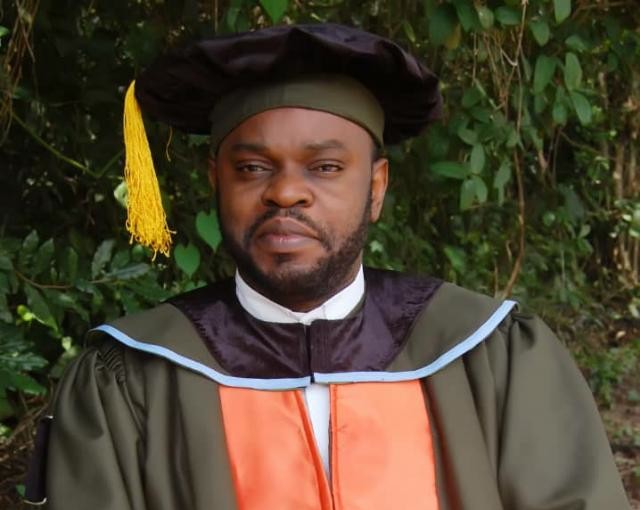Prof. Ikechukwu Anthony Kanu, O.S.A of the Department of Philosophy and Religious Studies, Tansian University has said that the consequence of the COVID-19 pandemic on the Nigerian economy is one that the nation will have to grapple with for years to come.
Prof. Kanu who stated this in a lecture titled, “Covid-19 and the Nigerian Economy” delivered at the Journalists International Forum for Migration (JIFORM) International Online Migration Summit on Thursday however said that the policy response would go a long way in determining how long it would last.
According to him, “If it is late, weak, or uncoordinated, the devastating consequences would last longer. However, if the response is prompt, strong and coordinated, it would be less devastating. For the policies to be coordinated, it must be multidimensional, bold, and unbound by convention.”
He noted that the immediate focus of the nation should be on measures to contain the spread of the disease and to treat the infected adding that the ability to stop its spread and treat the sick would have very positive consequences on the economy.
“Nigeria will need to bring together quality minds who would sit together and develop an economic model that is peculiar to the present situation and capable of saving the economy of the nation. This economic team will have to be selected not on the basis of ethnicity, religion or political party, but on the basis of competence. That is, if anything positive is to be expected from the team.
“The time has come to focus on developing the local economy with the hope of having a nation that is dependent on local goods rather than over-dependence on importation. Africa has depended on finished goods from Europe, America, China, etc., goods such as toothpick, face masks, ventilators, foodstuff, etc. At this time of COVID-19, when it has become difficult to import goods from other countries, countries like Nigeria, should start producing some of these things for her citizens. Interestingly, face masks and ventilators are beginning to be produced in Aba, Cross River and Anambra States”, he said.
To save the economy, Prof. Kanu who is also the Rector of the Villanova Polytechnic, Imesi-Ile, Osun State believed that companies and other establishments relieving workers of their job was not the solution to the problem arguing that while it presented itself as a temporal solution to the particular establishment, holistically viewed, it created another problem.
“We have always talked about employees’ loyalty to the employer; this is the time to emphasize the importance of employers’ loyalty as well. The quality of loyalty that an employer shows the employee at a moment like this has great consequences for the future of the company or establishment. There should be more of negotiation than relieving employees of their jobs”, he posited.
While admitting that movement at this time, especially of persons was very difficult as a result of the total lockdown in most states, he observed that to drive the economy, establishments would have to explore alternatives, like online engagements noting that “this is not only for businesses but also for the educational sector.”
“People should be able to run online educational packages from home. They should be able to shop and have it delivered to them at home. People should be able to consult a medical doctor online during an emergency”, he added.
He continued, “To boost the economy, the Federal government needs to intervene in the area of Small and Medium-Sized Enterprises (SME). These SMEs are significant as they contribute to economic development of the nation through their assets, revenues and employees. With COVID-19 threatening their existence, many who work with them will be going home without salary, may be for the second month. Some are already running serious losses unlike bigger establishments that have reserves to keep them going. For the economy to survive at this time, the government needs to bail out these SMEs.
“To protect the economy, there might be the need to look at the cost of governance. No system can maintain a large board at a time like this. No economy can make serious progress when its running cost is on the lead of other costs. There is the need to plead for the suspension of servicing or cancelation of international debts. In this way, the local economy would be given the breathing space to recover from the economic depression which COVID-19 pandemic has created.
“The Nigerian government must lead economic diversification drive. It is obvious that the one-tracked, monolithic reliance on oil has failed. Diversification priorities would lead to alternative economic sectors such as agriculture, solid minerals, manufacturing and services sectors . The fact that Nigeria is already looking distressed only after two months of crash in oil price, unlike her top oil producing counterparts like Saudi Arabia, Russia, etc., who are looking good to survive without oil, makes it clear that diversification is not an option if Nigeria must survive economically.
“The government will need to pay the salaries of workers at this time. Nations across the world are voting trillions of dollars to cushion the effect of COVID-19 lockdown on their citizens. The United States, Britain, South Korea, Japan, Italy, Spain, and even Ghana are doing this for their citizens. To keep citizens under lockdown and still deny them of their salaries for 2 to 3 months will not make any head way as economic development is holistic.”
Photo: The Rector, Villanova Polytechnic, Imesi-Ile, Osun State, Prof. Ikechukwu Anthony Kanu, O.S.A.
Send your news, press releases/articles to augustinenwadinamuo@yahoo.com. Also, follow us on Twitter @ptreporters and on Facebook on facebook.com/primetimereporters or call the editor on 07030661526, 08053908817.

